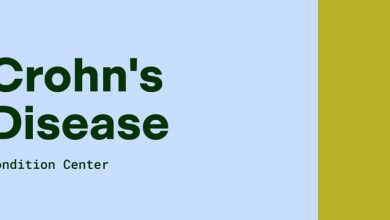Do Low-Calorie Diets and Vitamin Deficiencies Cause Headaches?

dragana991/iStock/GettyImages
When you’re dealing with a headache, you might run through a mental list of possible explanations for the pain. Are you tired? Stressed? Dehydrated? Did you eat enough today?
In order to avoid a headache when dieting and prevent vitamin deficiencies that might cause headaches, it’s important to eat strategically and get plenty of the right nutrients. Keep scrolling to learn how.
How to Avoid ‘Diet Headaches’
Getting a headache during weight loss is not uncommon. You’ll need to cut calories if you want to lose weight, but low-calorie diets can lead to headaches, fatigue and sleep problems, among other issues. So-called diet headaches or low-calorie headaches can be caused, yes, by not eating enough and by not eating enough of the right foods. (For example, the standard American diet includes many inflammatory foods, leading to metabolic dysregulation and headaches.)
1. Don’t Skip Meals
While severe headaches or migraines may be due to something more serious, most headaches are caused by common things like hunger, hangovers, exhaustion or caffeine withdrawal, according to Harvard Health Publishing.
Treatment for these kinds of headaches will often entail drinking plenty of water, eating something substantial, taking a non-steroidal anti-inflammatory pill like ibuprofen and then resting in a dark room with a cool cloth on your head. If you get side effects from NSAIDs (non-steroidal anti-inflammatory drugs) like ibuprofen, you can try acetaminophen, instead.
It’s important to be aware of how hunger and fasting may trigger headaches if you’re starting a low-calorie diet. Though you may want to skip breakfast or lunch when you start dieting, it’s not a good idea to skip entire meals if you’re prone to headaches. Instead, eat several small meals throughout the day, including breakfast.
People who are on strict diets or who have high metabolisms may be more likely to have hypoglycemia, which occurs when your blood sugar or glucose levels drop, according to the Mayo Clinic.
Glucose is your body’s main source of energy, so when it falls below a certain threshold you may feel fatigue, hunger, dizziness and shakiness. If these symptoms only continue to get worse, call your doctor or go to the nearest emergency room to get checked out.
If you’re getting hypoglycemia and a headache when dieting, work with a registered dietitian to design a daily meal plan that’ll work best for you. Be mindful of including healthy snacks into your day: Bananas, nuts, apples or hummus can go a long way in staving off the hunger shakes.
Protein is a weight-loss staple for a number of reasons. The nutrient promotes satiety, or feeling full for a long period of time, according to a November 2014 study in Nutrition & Metabolism. This study noted that a long-term diet low in fat and high in protein also helped people maintain a healthier weight than a diet low in fat and high in carbs.
4. Give Your Body Time to Adjust
While intermittent fasting is trending in the diet world, it doesn’t necessarily work better than conventional dieting, according to Harvard Health Publishing. If you tend to develop diet headaches, try to ease your way into the diet to allow your body to adjust rather than going cold turkey immediately.
Also, be aware of some of the other factors that could be contributing to headaches on your low-calorie diet. Not drinking enough water and dehydration can cause headaches, as can stress, muscle tension, weather changes and sinus problems, according to Harvard Health Publishing.
In addition to eating several small meals throughout the day with snacks, getting plenty of protein and keeping an eye on your hypoglycemia, you may also want to reduce stress and drink plenty of water, as well as try massages or acupuncture when you’re getting headaches.
Vitamin Deficiencies and Headaches
Sometimes not eating enough or not eating the right foods can lead to vitamin deficiencies, and if you’re wondering if it’s a vitamin deficiency that’s causing those headaches, know this: Being deficient in two nutrients in particular is commonly linked with pain. These are magnesium and folate (folate is also known as vitamin B9 or folic acid).
Migraines can also be triggered by vitamin and mineral deficiencies, according to the Migraine Institute. Migraines are severe headaches that are accompanied by visual changes, sensitivity to light and sound, throbbing pain, nausea and possibly, vomiting.
While some people suspect zinc deficiencies and headaches go together, zinc deficiencies are very uncommon in the U.S., per the Mayo Clinic.
People often link vitamin D deficiencies with headaches and migraines, as well. One January 2017 study in Scientific Reports found a connection between low levels of vitamin D and risk for chronic headaches in older men, but more research is needed.
Magnesium is a mineral that’s found both in the body and many foods. It’s also available as a dietary supplement and is sometimes added to certain food products, according to the National Institutes of Health (NIH).
The body needs magnesium to produce energy as well as carry out several other important functions. The Recommended Dietary Allowance (RDA) of magnesium for adults ranges from 360 to 420 milligrams.
For reference, an ounce of chia seeds has 111 milligrams of magnesium, per the NIH.
Headaches can be a symptom of magnesium deficiency, according to the NIH. In fact, people who get migraine headaches have lower levels of blood and tissue magnesium than those who don’t get migraines.
Even so, research on the use of magnesium supplements to prevent or reduce symptoms of migraine headaches is limited.
The American Academy of Neurology and the American Headache Society concludes that magnesium therapy is “probably effective” for preventing migraines, but the treatment should only be used under the guidance of your doctor, per the NIH, because it’s important not to take in an excess of the mineral.
You can boost your magnesium by eating foods rich in the mineral.
Foods High in Magnesium
- Pumpkin seeds
- Chia seeds
- Almonds
- Spinach
- Cashews
- Fortified cereal
- Soy milk
- Black beans
- Edamame
- Avocado
- Potato
- Brown rice
- Yogurt
Folic Acid Deficiencies and Headaches
Folate deficiencies have been associated with headaches, per a January 2020 article in the British Medical Journal.
Folic acid promotes healthy brain function and plays an important role in mental and emotional health, according to Mount Sinai. It works closely with vitamin B12 to help make red blood cells and help iron work properly in the body.
Your body needs folate and vitamin B12 to produce enough healthy red blood cells, according to the Mayo Clinic; a diet lacking in these and other key nutrients can cause decreased red blood cell production.
In addition, some people who get enough B12 aren’t able to absorb the vitamin. This can lead to vitamin deficiency anemia, also known as pernicious anemia.
Low levels of folic acid are fairly common, according to Mount Sinai. Folate deficiency is most typically found in pregnant and lactating people.
Certain conditions, including alcoholism, inflammatory bowel disease and celiac disease can lead to folic acid deficiency. It’s also possible for medications to lower levels of folic acid in the body.
A deficiency in folic acid, per Mount Sinai, has been linked to:
- Poor growth
- Tongue inflammation
- Gingivitis
- Loss of appetite
- Shortness of breath
- Diarrhea
- Irritability
- Forgetfulness
- Mental sluggishness
The recommended daily amount of folate for adults is 400 micrograms, according to the Mayo Clinic. For reference, a 1/2 cup of boiled spinach has 131 micrograms of dietary folate equivalents (DFE), as outlined by the NIH.
Adults who are planning pregnancy or could become pregnant are advised to increase their intake, getting somewhere between 400 to 1,000 micrograms a day.
Think your headaches are from a folate deficiency? Eat more foods rich in the B vitamin. If you can get enough vitamin B-rich foods, ask your doctor about taking a vitamin B supplement, too.
Foods High in Folate
- Spinach
- Dark leafy greens
- Asparagus
- Turnips
- Beets
- Mustard greens
- Brussels sprouts
- Lima beans
- Soybeans
- Root vegetables
- Whole grains
- Kidney beans
- White beans
- Lima beans
- Mung beans
- Salmon
- Orange juice
- Avocado
- Milk
Other Causes of Headaches
Although some headaches may be attributed to a nutritional deficiency, it’s not one of the most common causes. More likely reasons for headaches include hangovers and dehydration, stress or tension, not getting enough sleep and even exercise, according to the Mayo Clinic.
Headaches can also be a symptom of more serious conditions. Rather than attempting to diagnose the root cause alone, be sure to talk to your doctor if you’re getting regular headaches.



